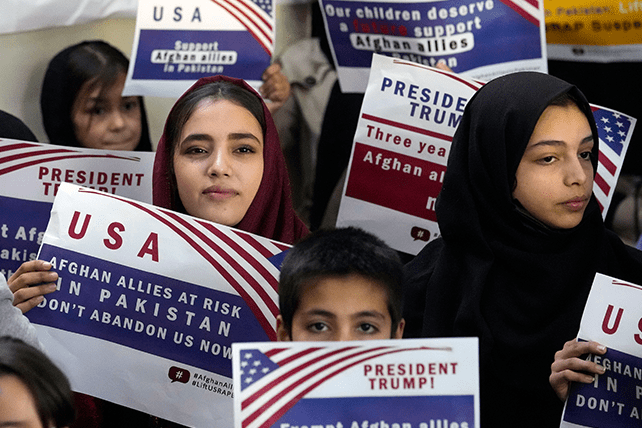While the United States might accept upwards of 100,000-200,000 refugees in a given year, this figure represents a small fraction of those seeking asylum worldwide. In fact, those applying for legal status can spend years in temporary refugee camps in a country neighboring their home country.
In these camps, most are financially disenfranchised, and asylum seekers can be at risk for becoming victims of violent crime and even human trafficking. In this way, USRAP decreases the risk of human trafficking.
Nevertheless, it is the prerogative of the U.S. president to set the ceiling on the number of refugees admitted into the United States in a given year, and it is the prerogative of Congress to determine the number of funds that are appropriated for resettlement.
What Was the Effect of President Trump’s Executive Order?
On his first day in office, President Donald Trump exercised his legal authority to put a 90-day freeze on USRAP, thereby closing the country to any incoming refugees for a period of evaluation of the resettlement program.
At the end of the 90 days, the Trump administration will determine whether to continue the program and if so, what ceiling will be placed on the number of refugees accepted for resettlement.
The same week Trump signed the executive order, the Trump administration indicated that the freeze on USRAP included a revocation of funds already appropriated for refugees who had already arrived in the United States.
In response, refugee resettlement organizations have been forced to furlough and layoff case workers and other staff. A number of these organizations, including World Relief, have scrambled to raise donations to cover services that are not currently being covered by the federal government.
A representative for World Relief told ChurchLeaders that on the same day it received a directive from the Trump administration to “stop all work” covered under USRAP, it had been prepared to receive a group of refugees in Sacramento, California.
The refugees were still met at the airport by representatives of World Relief, just with the knowledge that the care World Relief provides for these individuals would need to be resourced by entirely private funds.
Trump’s temporary freeze, should it be extended for a longer period of time or result in a significant reduction in the number refugees accepted into the U.S., could also hamper future efforts of resettlement, as a wave of layoffs would leave resettlement organizations without the necessary infrastructure to increase the number of refugees they can assist at one time.
RELATED: Christian Leaders Praise Trump for Executive Order Aimed at ‘Keeping Men Out of Women’s Sports’
In light of these needs, refugee resettlement organizations like World Relief are not only calling upon the Trump administration to reconsider its course of action with refugee resettlement but also calling upon Christians to donate, volunteer, and raise awareness of the needs of individuals fleeing from persecution—many of them fellow Christians and others who could be brought to faith through acts of Christian kindness.

